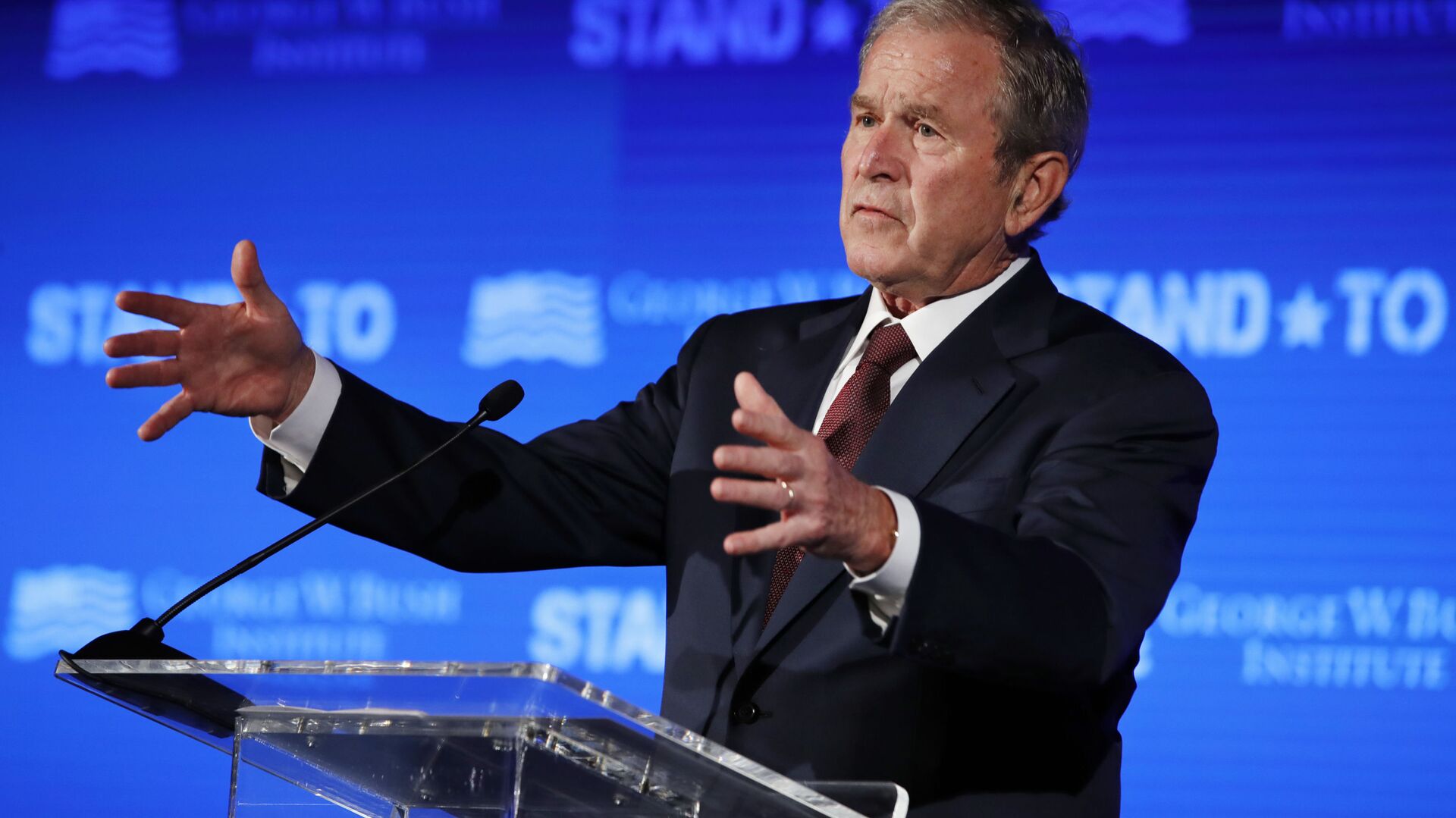Former US President George W. Bush claimed, while speaking to the Fox News on Wednesday, that Iran’s influence has contributed to the situation unfolding in the Gaza Strip and in Israel, aimed at Tel Aviv, which, in turn, acts out of concern for its “national security."
Bush raised the subject while presenting a new book, "Out of Many, One: Portraits of America’s Immigrants," devoted to Iranian activist Mariam Memarsadeghi.
When asked about the ongoing hostilities between Israel and Palestinians, Bush suggested that what "you're seeing playing out is Iranian influence targeted toward Israel."
“The best approach with regard to Iran is to understand that their influence is dangerous for world peace that they are very much involved with extremist movements in Lebanon and Syria and Yemen, and they are aiming to spread their influence”, he said.
Former US president also has referred to the 2015 Iranian nuclear deal, also known as the Joint Comprehensive Plan of Action (JCPOA) - the deal that former US President Donald Trump withdrew from in 2018, prompting Tehran to begin to abandon its nuclear-related commitments under the agreement.
Talks resumed last month with JCPOA participants in Vienna, in an effort to bring the US back to the deal. On Wednesday, Russia's Permanent Representative to International Organizations in Vienna, Mikhail Ulyanov, said the participants of the talks assume that the US will return to the deal.
"Any deal that is done has got to not only focus on its nuclear capabilities, but also its influence in the Middle East. And you know, any deal, you’ve got to keep in mind the dangers of an aggressive Iran to our allies, and to stability, so it has to be a comprehensive look," Bush said.
Commenting on the US administration's recent remarks about the two-state solution, Bush pointed out that “it's very difficult at this stage," adding that the violence between Israel and Palestinians is “Iranian influence targeted toward Israel" in an attempt “to break up alliances that were formed in the previous administration called the Abraham Accords" – agreements between Israel and a number of Arab states to normalize relations.
"Once the sit-in settles down, and if those Abraham Accords hold, it will make it easier to establish peace. But right now, those who don’t want peace are provoking and attacking Israel, and Israel is, of course, responding for national security reasons," he said.
The long-term Israeli-Palestinian conflict intensified last week. In early May, an Israeli court ordered the eviction of several Palestinian families from the Sheikh Jarrah area of East Jerusalem. Palestinians responded with rioting and clashes with border police in the Sheikh Jarrah area and near the Temple Mount where the Al-Aqsa mosque is located. Israeli military used rubber bullets, flash-bang grenades and tear gas to quell the uprising.
Tel Aviv's firm response triggered more protests. On 10 May, Hamas demanded that Israel withdraw military units from Sheikh Jarrah and the Temple Mount and later in the day fired rockets towards Israel, who returned airstrikes. According to Israel Defense Forces, some 4,000 rockets have been fired from Gaza in the last 10 days.


